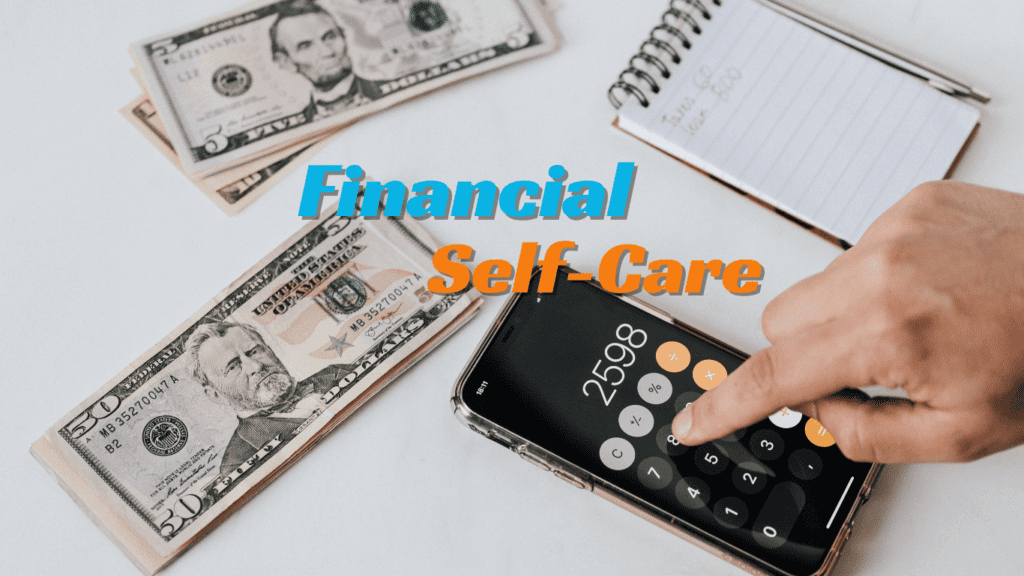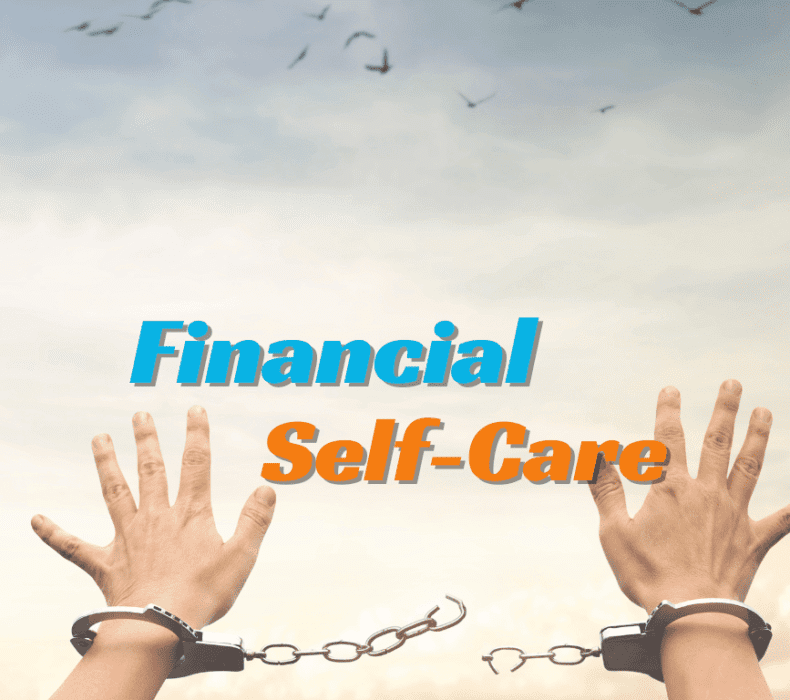Hey, ever stopped to think about the link between your wallet and your well-being?
It’s not just about dollars and cents. It’s about peace of mind, too. In a world that’s go, go, go, taking a breather to check in on your finances? Well, it’s kinda like that spa day for your soul. Money and mindfulness might seem like strange bedfellows, but trust me, they’re two peas in a pod.
Dive into this piece, and you’ll uncover the deep ties binding your financial health to your mental mojo. We’re chatting about why giving your finances a little TLC can do wonders for your stress levels and peace of mind. Plus, who doesn’t love feeling in control and on top of their game?
So, grab a cuppa, settle in, and let’s chat about money and mindfulness. ‘Cause, honestly, it’s high time we started treating our bank accounts like we do our mind and body.
Ready to strike a balance? Let’s dive deep and find that sweet spot!
- Introduction
- What is financial self-care?
- The benefits of financial self-care
- Developing a mindful money mindset
- Setting financial goals
- Budgeting and tracking expenses
- Saving and investing
- Managing debt
- Building an emergency fund
- Protecting your financial well-being
- Practicing mindful spending
- Building financial literacy
- Seeking professional help
- Balancing work and self-care
- Teaching financial self-care to others
- Incorporating self-care into everyday life
- FAQs
- Conclusion
Money, Mindfulness, and You: Why Financial Self-Care is Essential
Introduction
Financial self-care is a crucial aspect of overall well-being that often gets overlooked. In this article, we will explore why financial self-care is essential and how it can positively impact your life.
By developing a mindful money mindset, setting financial goals, budgeting and tracking expenses, saving and investing, managing debt, building an emergency fund, protecting your financial well-being, practicing mindful spending, building financial literacy, seeking professional help, balancing work and self-care, teaching financial self-care to others, and incorporating self-care into everyday life, you can improve your financial security, reduce stress and anxiety, and increase your financial independence.
What is financial self-care?
Financial self-care refers to the practice of taking care of your financial well-being. It involves being mindful of your financial habits, setting goals, budgeting, saving, investing, managing debt, and protecting your financial assets. Just as you would prioritize your physical and mental health, financial self-care emphasizes the importance of taking proactive steps to maintain and improve your financial situation.

The benefits of financial self-care
Engaging in financial self-care offers numerous benefits. Firstly, it improves your financial security by helping you build a strong financial foundation and plan for the future. By setting goals and budgeting, you can gain control over your finances and work towards achieving financial stability. Secondly, financial self-care reduces stress and anxiety. Money-related worries can take a toll on your mental health, but by actively managing your finances, you can alleviate these concerns and cultivate a sense of peace. Lastly, financial self-care increases your financial independence. By saving, investing, and managing debt effectively, you can become more self-reliant and have the freedom to make choices based on your own preferences and values.
Developing a mindful money mindset
One of the key aspects of financial self-care is developing a mindful money mindset. This involves cultivating awareness of your financial habits and identifying and changing any negative money beliefs you may hold. By becoming more conscious of your spending patterns and underlying beliefs about money, you can make more intentional financial decisions that align with your goals and values.
Setting financial goals
Setting financial goals is an important step in practicing financial self-care. By defining both short-term and long-term goals, you can create a roadmap for your financial journey. Whether your goals involve saving for a down payment on a house, paying off debt, or planning for retirement, having clear objectives will guide your financial decisions and keep you motivated.
Budgeting and tracking expenses
Budgeting is a cornerstone of financial self-care. It allows you to take control of your finances by tracking your income and expenses and ensuring that you’re living within your means. By creating a budget and sticking to it, you can make informed choices about how you spend your money and avoid unnecessary debt.
Saving and investing
Saving and investing are essential components of financial self-care. Saving money not only provides a safety net for unexpected expenses but also allows you to work towards your financial goals. Investing, on the other hand, helps your money grow over time and can provide additional income streams. By saving and investing wisely, you can build wealth and secure your financial future.
Managing debt
Debt management is another crucial aspect of financial self-care. By understanding the different types of debt and developing strategies to pay it off, you can reduce financial stress and improve your overall financial health. Whether it’s creating a debt repayment plan or exploring debt consolidation options, taking steps to manage your debt will put you on the path to financial freedom.
Building an emergency fund
An emergency fund is an essential part of financial self-care. It acts as a financial safety net, providing funds to cover unexpected expenses such as medical bills or car repairs. By consistently saving and building an emergency fund, you can protect yourself from financial setbacks and maintain peace of mind.

Protecting your financial well-being
Protecting your financial well-being involves safeguarding your assets through insurance and estate planning. Insurance policies such as health insurance, car insurance, and homeowner’s insurance provide financial protection in case of unexpected events. Estate planning ensures that your assets are distributed according to your wishes and minimizes the financial burden on your loved ones. By taking steps to protect your financial well-being, you can have peace of mind knowing that you are prepared for the unexpected.
Practicing mindful spending
Mindful spending is an important aspect of financial self-care. It involves evaluating your needs versus wants and making conscious choices about how you spend your money. By practicing mindful spending, you can avoid impulsive purchases and focus on what truly brings you value and happiness.
Building financial literacy
Financial literacy is key to successful financial self-care. By educating yourself about personal finance topics such as budgeting, investing, and managing debt, you can make informed decisions and take control of your financial future. There are numerous resources available, including books, websites, and financial education programs, that can help improve your financial literacy.
Seeking professional help
Sometimes, seeking professional help is necessary to navigate the complexities of personal finance. A financial advisor can provide expert guidance tailored to your specific needs and goals. Whether you need assistance with retirement planning, investment strategies, or debt management, consulting a financial professional can help you make informed decisions and optimize your financial well-being.
Balancing work and self-care
Balancing work and self-care is essential for maintaining overall well-being, including financial self-care. It’s important to prioritize self-care activities such as exercise, relaxation, and spending time with loved ones alongside your financial goals. By finding a healthy work-life balance, you can prevent burnout and cultivate a fulfilling and sustainable lifestyle.
Teaching financial self-care to others
Sharing knowledge and empowering others with financial self-care practices is a valuable way to contribute to their well-being. Whether it’s teaching your children about budgeting and saving or supporting a friend in their financial journey, spreading awareness about financial self-care can have a positive impact on those around you.
Incorporating self-care into everyday life
Incorporating self-care into your everyday life is essential for maintaining a healthy and balanced approach to finances. It’s important to find ways to prioritize self-care activities alongside your financial goals.
This can include simple actions such as taking breaks during the workday, practicing mindfulness, or engaging in activities that bring you joy and relaxation. By taking care of yourself holistically, you can sustain your financial self-care practices in the long term.
FAQs
Q: What is the link between mindfulness and financial self-care?
Mindfulness and financial self-care are closely interconnected. Mindfulness involves being fully present and aware of your thoughts, emotions, and actions. When applied to your finances, mindfulness can help you develop a deeper understanding of your spending habits, identify any negative patterns or beliefs around money, and make conscious choices about how you use your financial resources. By practicing mindfulness in your financial decisions, you can cultivate a healthier relationship with money and make choices that align with your values and goals.
Q: How can financial self-care improve mental health?
Financial self-care can have a significant impact on your mental health. Money-related stress and anxiety are common issues that can negatively affect your overall well-being. By actively practicing financial self-care, such as budgeting, saving, and managing debt, you gain control over your financial situation and reduce the uncertainty and worry that can contribute to mental health issues. Taking steps to improve your financial security and stability can provide a sense of peace and alleviate some of the emotional burden associated with money.
Q: Can anyone practice financial self-care, regardless of income?
Yes, absolutely. Financial self-care is not limited to those with high incomes or significant financial resources. It is a practice that anyone can engage in, regardless of their income level. Financial self-care is about being mindful of your financial habits, setting goals, and making intentional choices with the resources you have. Whether you are saving a small amount each month or paying off debt, everyone can take steps to improve their financial well-being and practice financial self-care.
Q: How often should I review and adjust my financial goals?
The frequency of reviewing and adjusting your financial goals depends on your individual circumstances and needs. It is generally recommended to review your goals regularly, at least once a year, to ensure they are still aligned with your current financial situation and aspirations. However, major life events or changes in your financial circumstances may require more frequent reviews and adjustments. It’s important to be flexible and adaptable with your goals, allowing them to evolve as your life and financial situation change.
Q: Is it possible to achieve financial independence through self-care?
Practicing financial self-care can certainly contribute to achieving financial independence. Financial independence is the state of having enough wealth and resources to support your desired lifestyle without relying on employment or other sources of income. By practicing mindful money management, setting and working towards financial goals, saving and investing wisely, and managing debt effectively, you can build a solid financial foundation and work towards achieving financial independence. However, achieving financial independence is a long-term goal that requires consistent effort and smart financial decisions.
Q: What are some common financial self-care mistakes to avoid?
There are several common financial self-care mistakes that people should be aware of and try to avoid. One mistake is ignoring or neglecting your financial situation, which can lead to increased stress and financial difficulties. Another mistake is overspending or living beyond your means, which can lead to debt and financial instability. It’s also important to avoid making impulsive financial decisions without considering the long-term consequences. Lastly, failing to regularly review and adjust your financial goals and plans can prevent you from making progress toward your desired financial outcomes.
Conclusion
Financial self-care is a vital aspect of overall well-being. By prioritizing your financial health through mindful money management, goal setting, budgeting, saving and investing, debt management, emergency fund building, and protecting your assets, you can improve your financial security, reduce stress and anxiety, and increase your financial independence.
Incorporating self-care practices into your everyday life and sharing your knowledge with others can further enhance the positive impact of financial self-care. Start prioritizing your financial well-being today and reap the benefits of a healthier financial future.






 Get it on
Get it on  Download on the
Download on the
I’ve been following your blog for some time now, and I’m consistently blown away by the quality of your content. Your ability to tackle complex topics with ease is truly admirable.